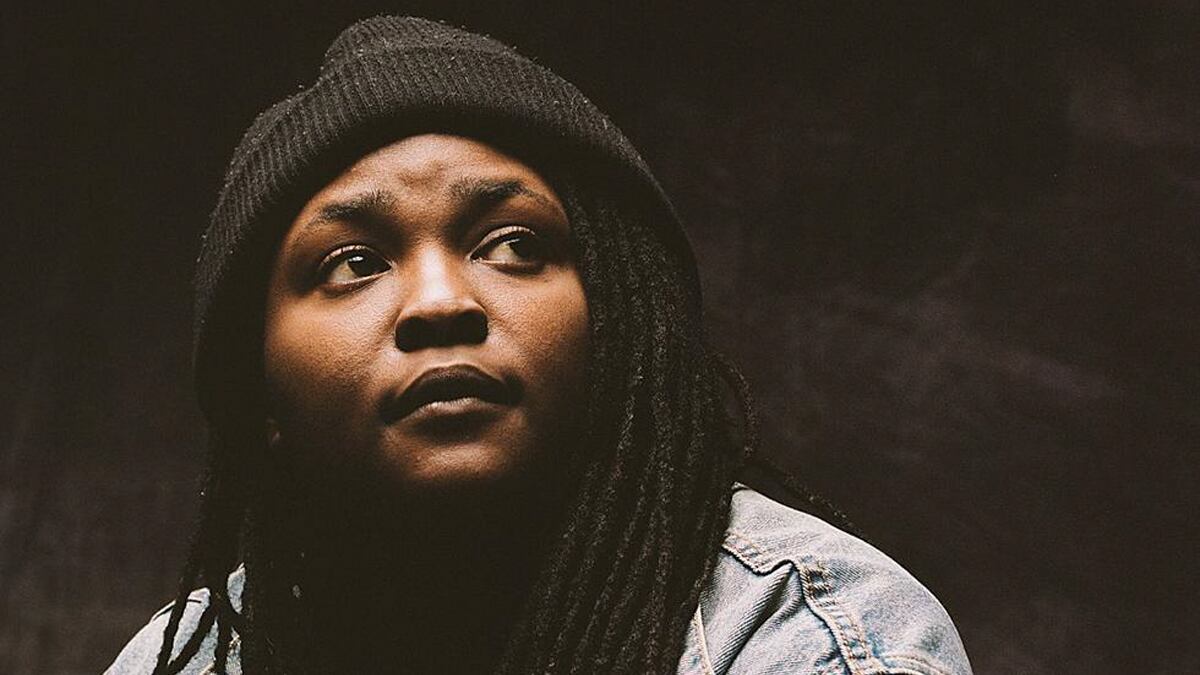Joy Oladokun makes no promises that you’ll bang your head when she plays the Wonder Ballroom, but the singer, songwriter and producer known for her soul-baring, emotional songs drops one hint: “I think people will be really shocked at the energy of the show.”
Speaking from her home studio in Nashville two weeks before hitting the road, she adds, “I grew up in church, but I also grew up playing in and listening to a lot of rock bands. We’re playing everything live, and it’s really fun and visceral.”
This is what the music biz calls a key moment. Not only is Oladokun heading out on her first headline tour, but she’ll be opening for Maren Morris and My Morning Jacket on several dates and promoting her intensely poignant album, in defense of my own happiness.
Many of the songs have a cathartic, warm-blanket quality, including “if you got a problem,” which is suitable for whatever you feel like crying about. Others, such as “i see america” are tender yet chilling takes on racism, a recurring theme, along with sexual orientation and faith.
Oladokun’s voice has a clear-eyed, soulful achiness, and even a childlike quality (“I love ‘childlike’ to describe what I go after. I’m staring at my Cookie Monster piggy bank right now,” she laughs). And when it cracks just a bit, like on her devastating version of “Blackbird,” the Beatles’ contribution to the civil rights movement, you feel an invisible glacier of pain behind her face.
“If I put everybody that I’ve made music with in a room and asked them to describe my singing voice, they all would have pretty different answers,” she says. “I’ve gotten Aretha Franklin, I’ve gotten Justin Bieber, I won’t get a common answer because I’m pretty uncommon. I am definitely an amalgamation of all my influences. Obviously, Tracy Chapman is in there. I hear Paul Simon in my work.”
While Oladokun is the daughter of Nigerian immigrants and grew up in Casa Grande, Ariz., she’s now firmly rooted in Nashville. When asked if Nashville lives up to its reputation of having musicians showing up at the front door to jam after dinner, she responds: “You know what’s hilarious? Those are exactly my after-dinner plans.”
As a shy child coping with social anxiety, Oladokun was one of the only Black kids in town. “My shyness gave me this gift to sit back and watch and be OK with it,” she says. “Unfortunately, I was so scared to be myself for a lot of reasons. I was one of the only Black kids in my class and not interested in all the things that everybody tells you Black kids are interested in, so I got ostracized from all different groups.”
Even today, Oladokun tends to be an observer: “In parties or in groups, I’m usually relatively quiet until I actually have something to say, which for me is how it should be.”
So what would 8-year-old Joy say to her adult self? “‘I’m proud of you,’” she says. “I genuinely think she would be excited and encourage me to keep telling the truth and trying to make people feel included in a way that she didn’t. We’ve ignored marginalized voices for so long, and I happen to be the center of the Venn diagram of them. I am a Black queer woman.”
Although Oladokun says that her “favorite thing in the world is to get stoned and play music,” she believes that her creations are about more than her own experiences. Fans of every stripe can relate to her songs—and with that reality comes responsibility.
“How do I write someone into my experience?” she muses. “Or how do I take sort of the easiest thing from my experience and make it human because everybody feels embarrassed or ashamed or scared, you know? I happen to feel those things for a very specific reason, but those feelings are not foreign to someone who’s different from me. I think my work as an artist is to bridge that gap.”
SEE IT: Joy Oladokun plays at the Wonder Ballroom, 128 NE Russell St., 503-284-8686, wonderballroom.com. 8:30 pm Friday, April 15. $18.
